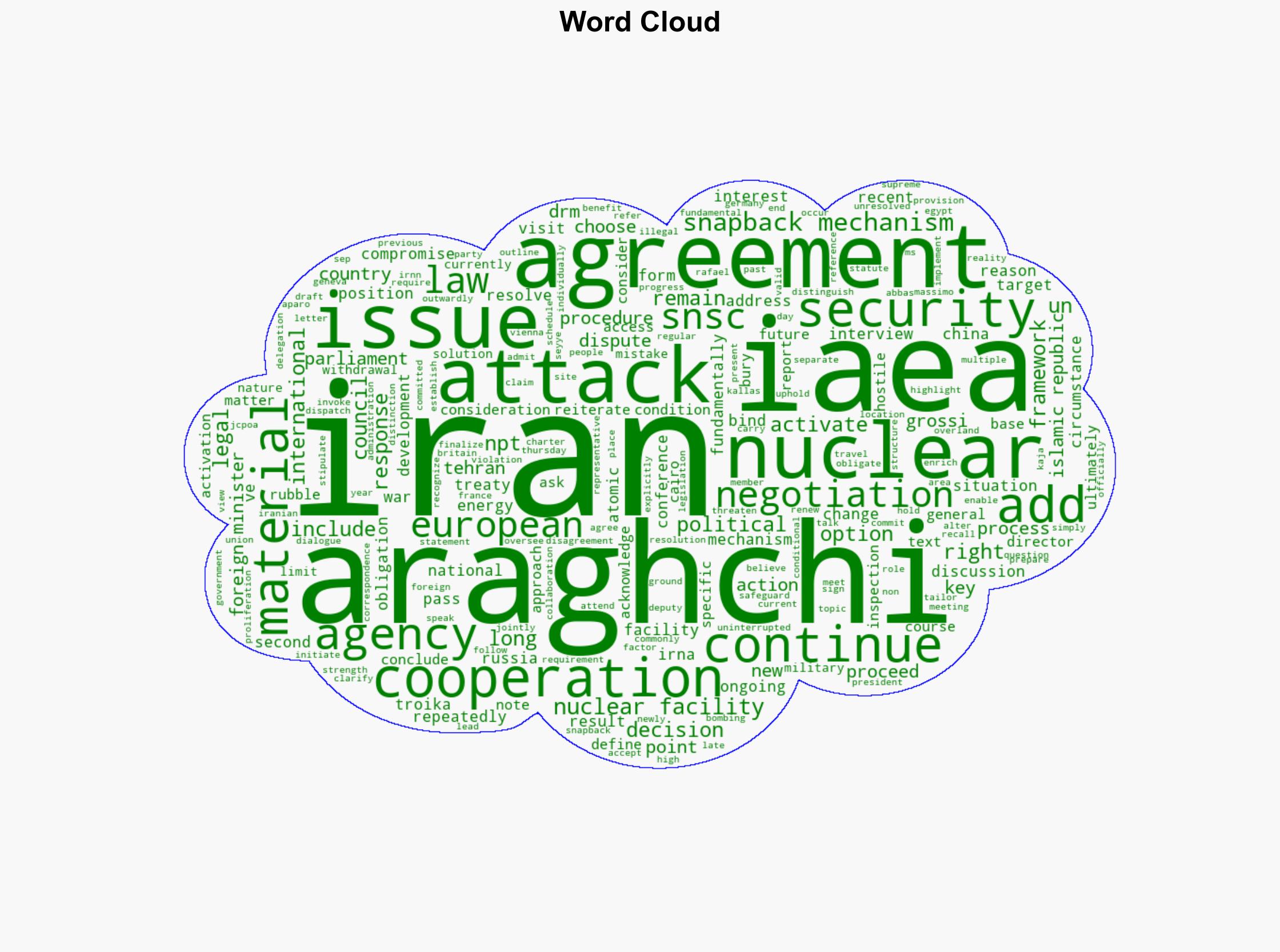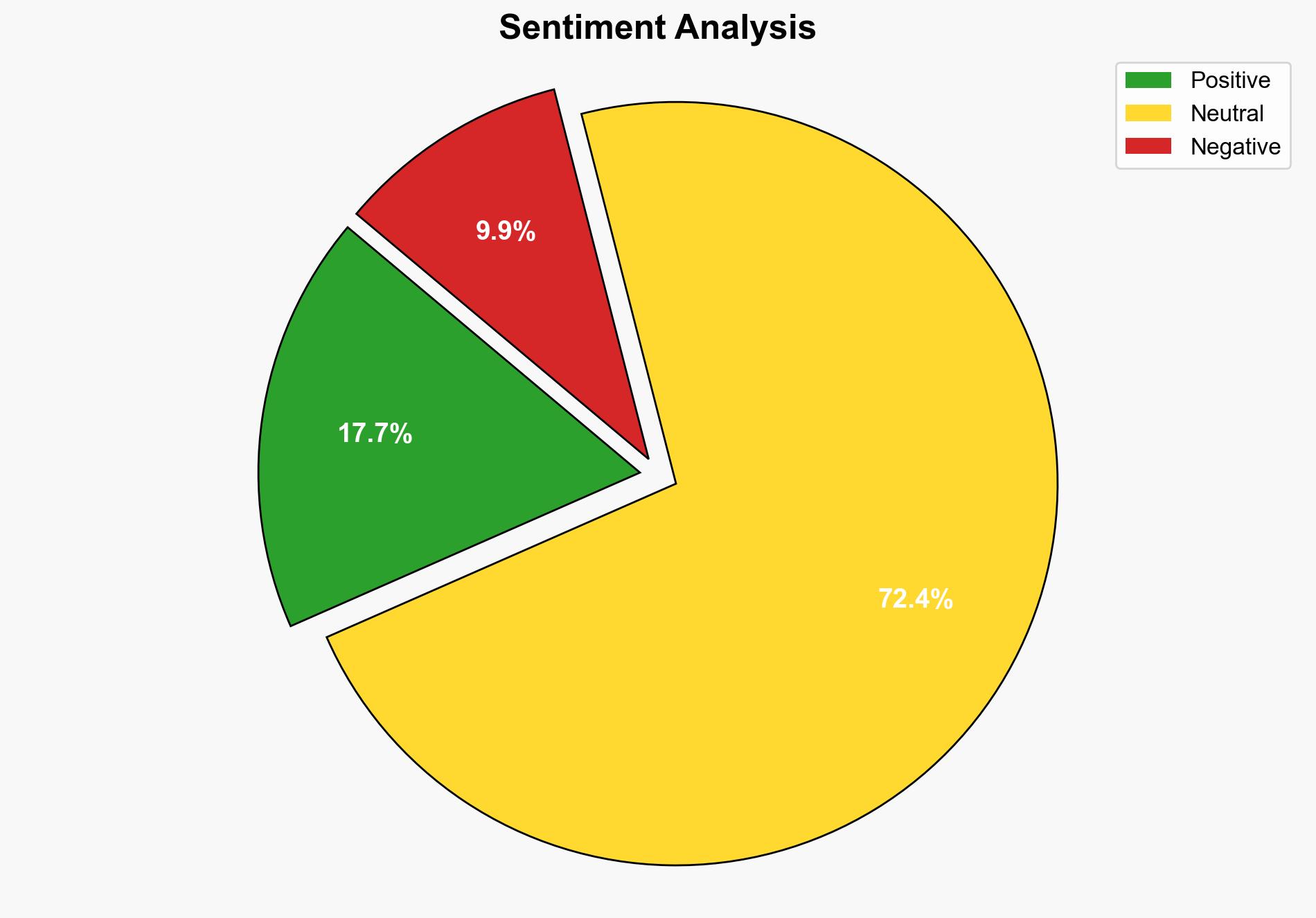Iran will never compromise its rights and security Araghchi – Globalsecurity.org
Published on: 2025-09-13
Intelligence Report: Iran will never compromise its rights and security Araghchi – Globalsecurity.org
1. BLUF (Bottom Line Up Front)
Iran’s stance on maintaining its national security and rights, particularly concerning its nuclear program, remains firm. The most supported hypothesis is that Iran will continue to leverage international negotiations to solidify its position while adhering to its legislative constraints. Confidence level: Moderate. Recommended action: Monitor developments in Iran’s nuclear negotiations and legislative changes closely to anticipate shifts in policy or strategy.
2. Competing Hypotheses
1. **Hypothesis A:** Iran is using the negotiations and cooperation with the IAEA as a strategic tool to buy time and advance its nuclear capabilities under the guise of compliance.
2. **Hypothesis B:** Iran is genuinely committed to maintaining a cooperative stance with the IAEA and the international community, but its actions are constrained by internal legislative mandates and security concerns.
Using ACH 2.0, Hypothesis B is better supported due to Iran’s continued engagement with international bodies and the legal framework imposed by its parliament, which suggests a structured approach rather than outright deception.
3. Key Assumptions and Red Flags
– **Assumptions:** Iran’s legislative mandates are assumed to be rigid, limiting flexibility in negotiations. The international community is assumed to maintain pressure on Iran to comply with nuclear agreements.
– **Red Flags:** Potential for Iran to exploit legal ambiguities to advance its nuclear program. The possibility of internal political shifts altering Iran’s current stance.
– **Blind Spots:** Limited insight into Iran’s internal decision-making processes and the influence of hardline factions.
4. Implications and Strategic Risks
– **Patterns:** Iran’s consistent emphasis on legal and political disputes suggests a strategy to fortify its negotiating position.
– **Cascading Threats:** Escalation of tensions could lead to regional instability, impacting global energy markets and security.
– **Potential Escalation:** Failure to resolve disputes could lead to increased sanctions or military confrontations, particularly if Iran’s nuclear capabilities are perceived as a direct threat.
5. Recommendations and Outlook
- Enhance diplomatic engagement with Iran to clarify intentions and reduce misinterpretations.
- Strengthen intelligence collection on Iran’s internal political dynamics to anticipate shifts in policy.
- Scenario Projections:
- Best Case: Iran and the international community reach a new agreement, stabilizing the region.
- Worst Case: Breakdown in negotiations leads to military conflict.
- Most Likely: Continued negotiations with periodic tensions and incremental progress.
6. Key Individuals and Entities
– Seyye Abbas Araghchi
– Massimo Aparo
– Rafael Grossi
– Kaja Kallas
7. Thematic Tags
national security threats, cybersecurity, counter-terrorism, regional focus





